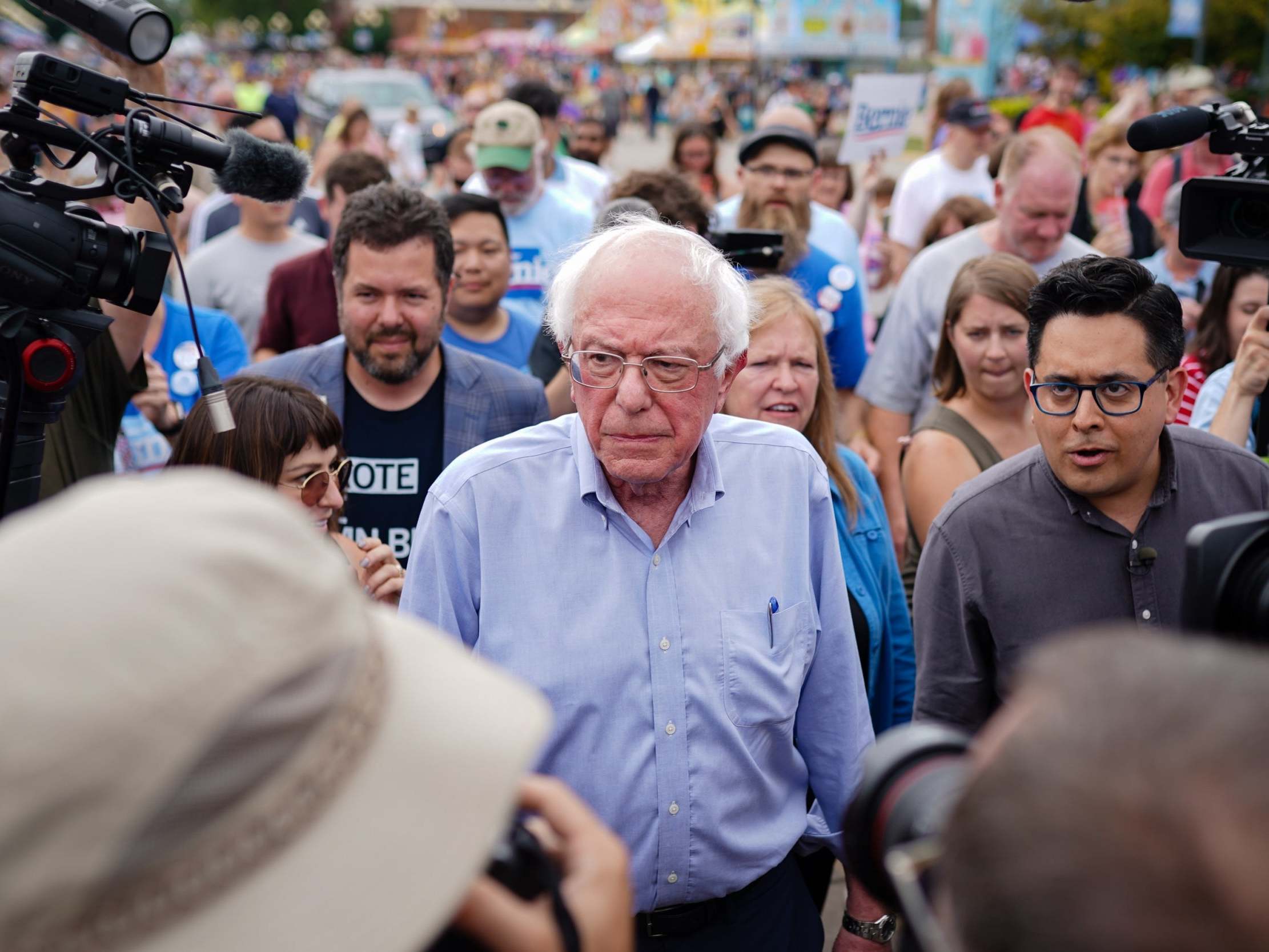Democrats are psychologically different to Republicans. That's why Marianne Williamson and Andrew Yang don't stand a chance
A true outsider never wins a Democratic primary. Republicans said, 'No more of these kinds of guys.' There's a reason why their counterparts can't bring themselves to do the same

In 2015, a year before the US electoral system was primed to send the White House its first new occupant in eight years, Donald Trump engineered an astonishing takeover of the Republican Party. It’s 2019 now, and once again America finds itself a year away from a massive presidential election — except this time, there is zero chance the party out of office trusts an outsider with the reins.
To understand why that is, we need to rehash how Trump was able to hijack an entire party and bend it to his will.
When prompted, the president’s critics are capable of rattling off a litany of conventions they believe Trump gleefully smashed on his way into the Oval Office. But there is one bit of conventional political wisdom whose demolition has largely stayed under the radar, most likely due to its origins in the academy and not in mainstream discourse: the idea that political parties are the factors most determinative in securing who the nominees will be for president. A 2008 book captured this notion in its title: The Party Decides. Trump falsified it in one fell swoop.
Recall that Jeb Bush, the former two-term governor of Florida whose father (41) and older brother (43) made it to the White House, came out of the gate roaring in 2015. The institutional support — endorsements, donor money, high-profile surrogates, party leadership support — was all his. And yet, Trump ripped through it all like a hurricane descending on a house of cards.
This happened because the party and the voters were worlds apart — the party just didn’t realize it. For the last decade and a half of Republican politics, the voters sent message after message warning the party that an anti-establishment moment was coming.
George W Bush’s brand of “compassionate conservatism” was euphemistic for “spend like a liberal.” Yet the lesson wasn’t learned in 2008. While John McCain, the Republican nominee for president that year, chose the proto-Trumpian Sarah Palin as his running mate, there was nothing he could do to beat back his image as irredeemably moderate.
Then, in 2010, after a Tea Party wave crashed right into Obama’s legislative designs, the Republicans followed that up with…Mitt Romney? Because nothing stokes populist allegiance quite like running a lucrative private equity firm and then serving as governor of that great conservative bastion, Massachusetts. Once Obama’s eight years were up, voters decided they would not allow the establishment to get its way yet again. Jeb Bush begged for claps and he did not get them. Trump clapped back, and he got everything.
This is the context that explains how a barely literate reality TV star with no political experience engineered a takeover of a major political party. The groundwork was laid by years and years of — to the conservative imagination — failed presidencies, elections, and agendas. The GOP’s base quite simply refused to support another company man. The rest is history.
That’s manifestly not the situation Democrats finds themselves in. Though the winds have changed on Obama-era policies, Democrats remain largely proud of his eight years in office. There are pockets of the left wing of the party who are just as stridently anti-establishment as some of Trump’s voters were, but what anti-establishment looks like to them is quite different than it does on the right. In 2016, Hillary Clinton was construed as the establishment candidate — the one the institutional organs of the party were backing against the charmingly aloof Bernie Sanders, whose insurgent candidacy struck some outsider-y notes but who was ultimately as much of an insider as Clinton. After all, you don’t get to spend decades in Congress and call yourself anti-establishment.
This gets to the other reason a true outsider cannot win a Democratic primary. In addition to recent history being far more sanguine to their political prospects, in sharp contradistinction to the political alienation conservatives felt for so long toward their own party, Democratic voters value political competence and experience. They see it as a political virtue rather than as a drawback. Republican voters cried out, “No more of those types of guys.” Democratic voters can’t help but say, “Let’s go with someone different — without compromising our belief in the power of political experience and high educational competence.”
Take Marianne Williamson and Andrew Yang, two outsiders vying for the Democratic nomination. As much buzz as they’ve recently received — Williamson for her debate performances and Yang for his Silicon Valley glow — there’s simply no path to victory for them in the Democratic primaries.
Trump seized the moment pretty quickly and never looked back. Williamson and Yang can’t break through the way Trump did, the way Ben Carson did – hell, the way even Herman Cain did for a brief spell in 2012 – because Democrats like the way their party’s progressing and because they like their candidates to go through the political channels capable of equipping them with the know-how they need to do a good job in high elected office.
By all means, geek out on Marianne Williamson memes and newly resurfaced tweets. Just don’t expect her to get anywhere near the Oval Office.

Join our commenting forum
Join thought-provoking conversations, follow other Independent readers and see their replies